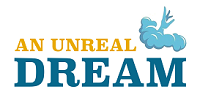In today’s world, ethical dilemmas are everywhere—from small, everyday choices to life-altering decisions. Whether it’s about being truthful in personal relationships, fair in business dealings, or responsible as a global citizen, our moral choices shape not only who we are but also how society functions. Just as physical muscles require regular exercise and conditioning to stay strong, so do our moral muscles. Strengthening your ethical backbone means building habits of integrity, honesty, and accountability into everyday life.
The Role of Accountability in Ethical Decisions
One essential factor in maintaining ethical strength is having systems of accountability in place. We all need reminders and reinforcement to stay on track with our values. Whether it’s sharing your personal goals with a friend, maintaining transparency in the workplace, or using external tools to check yourself, accountability ensures that we remain aligned with our moral commitments.
For instance, Soberlink provides a system that helps individuals recovering from alcohol addiction remain accountable by tracking and sharing their sobriety progress. This tool not only enables users to maintain responsibility toward themselves and their loved ones but also fosters a deeper commitment to ethical principles such as honesty and accountability. Soberlink review results show how significant this platform is in people’s recovery journeys and how it helps them stay on track. Investigate different people’s points of view for more in-depth feedback and experiences. Systems like Soberlink promote the kind of discipline and accountability that are essential for sustaining ethical behavior over the long term.
What Are Moral Muscles?
The term “moral muscles” refers to the mental and emotional strength needed to make ethical decisions, even when it’s difficult. Much like physical muscles, these moral muscles require consistent practice and reinforcement. Our ability to stand up for what is right, resist temptations, and make decisions that align with our values depends on how well-developed our ethical muscles are.

The good news is that anyone can build their moral muscles. It’s not an innate trait but a skill set that can be honed over time. This includes actions like resisting dishonesty, sticking to commitments, and admitting mistakes, which are often harder in the moment but contribute to a life of integrity.
Daily Exercises for Strengthening Moral Muscles
- Practice Self-Awareness: The first step in strengthening your moral muscles is becoming more aware of your daily actions. Reflect on decisions you make throughout the day, no matter how small. Did you overstate something in a conversation to make yourself look better? Did you shy away from speaking up for what’s right because it was uncomfortable? Building self-awareness helps you identify areas where you may be compromising your values without realizing it.
- Resist Small Temptations: Small, seemingly inconsequential decisions can set the tone for your overall moral strength. If you can resist cutting corners in minor situations—whether it’s fudging numbers on a work report or telling a little white lie—you build up your resistance to bigger ethical temptations later on. Every act of integrity, no matter how small, adds to the development of your moral muscles.
- Take Responsibility for Your Actions: Owning up to your mistake is a critical part of building ethical strength. When you take responsibility for the consequences of your actions, even when it’s uncomfortable or humbling, you reinforce a mindset of accountability. This can extend from admitting a mistake at work to taking responsibility for your role in a personal conflict.
- Engage in Ethical Role-Playing: A practical way to strengthen moral muscles is to imagine how you would act in different ethical scenarios. What would you do if you witnessed a coworker engage in dishonest behavior? How would you respond if you saw someone being treated unfairly? Engaging with hypothetical situations like this prepares your moral muscles to act with strength when real-life challenges occur.
Building Courage for Ethical Decision-Making
Strengthening moral muscles also means building courage—courage to stand by your principles even when it’s hard. There will be times when making the ethical choice will require personal sacrifice, whether it’s losing a client because of honesty, or standing up to a friend’s harmful behavior. Developing moral courage means being willing to endure short-term discomfort for long-term integrity.
Consistency Is Key
As with physical fitness, consistency is the foundation of strong moral muscles. Ethical decision-making isn’t something that’s needed only for major life events; it’s a daily practice. Whether it’s being honest about why you’re running late or choosing not to gossip about a colleague, every small decision you make strengthens—or weakens—your moral muscles.
A Stronger Ethical You
Building and maintaining strong moral muscles requires consistent practice, self-awareness, and sometimes external tools of accountability. By reflecting on daily actions, resisting temptations, and taking responsibility, you lay the groundwork for a life of integrity. And with the support of accountability systems like Soberlink and the courage to make difficult choices, you can strengthen your ethical backbone, ensuring that your decisions align with the values that matter most.
In a world filled with ethical gray areas, a strong moral backbone is not just a personal asset but a societal necessity. By consciously exercising your moral muscles, you contribute to a more just, honest, and accountable world.

